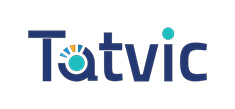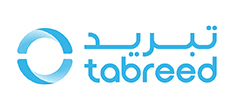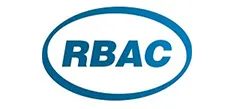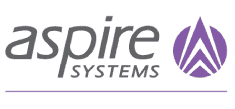Know Everything About Filing Financial Statements in Singapore
Know Everything About Filing Financial Statements in Singapore
All Singapore private limited companies have to comply with Accounting and Corporate Regulatory Authority (ACRA). ACRA has made it mandatory for all active and dormant Singapore companies to file annual financial statements which are prepared in accordance with the Financial Reporting Standards of Singapore. These financial statements comprise of Statement of Comprehensive Income (i.e. Profit and Loss Account), Statement of Financial Position (i.e. Balance Sheet), Statement of Changes in Equity and Cash Flow Statement.
In this article, we will highlight the annual compliance and filing requirements for Singapore companies. We will also provide you information on how to file financial statements in XBRL, when to file them, how to rectify any errors in filing and other compliance requirements.
First let us understand the checklist for preparing and filing XBRL financial statements under the new BizFin system. This section will give you information on things that you need to know while preparing and filing financial statements.
Know everything about Filing Financial Statements in Singapore
Preparing XBRL Financial Statements
- Use the offline BizFinx preparation tool to prepare the XBRL financial statement. The tool is provided by ACRA and is available for free
- To use the tool, you must have a source document i.e. financial statements that are tabled in AGM and prepared in Microsoft (MS) Word or Excel format
- Follow the minimum list requirement and prepare the XBRL financial statements
- Check and review the XBRL financial statement. Rectify the genuine errors that are highlighted and avail the exemptions from ACRA for specific reasons. Also, check for the possible errors that are flagged out of genuine errors. If no error is detected, you may proceed without making any changes
Filling XBRL Financial Statement
- Filling Through the BizFinx Portal
Validate and upload the XBRL financial statement by logging in through SingPass / CorpPass. On validation of the XBRL financial statements, you may come across genuine or possible errors. The genuine errors that are highlighted must be rectified or exemptions can be availed from ACRA for specific reasons. The possible errors must be rectified if they are genuine errors. If they are not, select the checkbox present near the possible errors and confirm that they are not errors. - Filling Through Annual Return form in BizFile
To file XBRL financial statements through annual return form in BizFile, you need to log in as authorized personnel.
Next let us understand in detail about revised XBRL filling requirements.
Revised XBRL Filling
From 3rd March 2014, the revised XBRL filling under BizFinx is applicable. In this segment of the article, we will walk you through various details about revised XBRL filing.
Who is Required to File
Every company that is incorporated in Singapore must file their financial statements with the ACRA. The financial statements must be filed in XBRL format and as per the minimum requirement list with the Taxonomy of ACRA.
Filling Requirements for Different Types of Companies
| Type of Company | Filing of Financial Statements |
| Public or Private Companies whether limited/unlimited by shares, except (a) and (b) below | Full set of financial statements in XBRL Format |
| Commercial banks, licensed insurers, finance companies regulated by MAS, merchant banks | PDF copy of financial statements along with Financial statements highlights (FSH) in XBRL format |
| Companies that have been allowed by law to prepare their accounts in accordance with the accounting standards other than SFRS, IRFS and SFRS for Small Entities | PDF copy of financial statements along with Financial statements highlights (FSH) in XBRL format |
| Solvent exempt private companies (EPCs) | Even though these companies are exempt to file financial statements but still they are encouraged to file either of the two:
|
| Insolvent EPCs | These companies have the following two options to file:
|
| Companies limited by guarantee | PDF copy of financial statements |
| Foreign companies and their local branches | PDF copy of financial statements |
Financial Periods Applicable to Companies
For companies that file financial statements with periods ending on or after 30 April 2007, revised XBRL filing requirements shall be applicable to them.
Companies must file PDF copy of financial statements along with financial statement highlights (FSH) in XBRL format when they file financial statements relating to financial periods ending before 30 April 2007.
Minimum Requirement List for Full Set of Financial Statements in XBRL
The companies that file a full set of financial statements in XBRL must follow the requirements of the minimum list. The minimum list is the set of elements within ACRA Taxonomy that companies must file if the financial statement comprises of such information. Companies may opt for disclosing more information than the minimum requirement list in the XBRL format.
The minimum requirement list is derived after a cost-benefit analysis of the stakeholders in a company. The list is need driven and includes elements that are sought by consumers of financial information.
The minimum requirement list consists of a combination of;
- A text block element that allows the companies to submit the entire set of financial statements
- The detailed information element presents within individual sections of the financial statements and allows companies to submit information
Text Block Information
As per the minimum list requirement, the company must submit the entire set of financial statements using a single text block element.
Detailed Information
The detailed information element comprises of:
- Statutory Report: The minimum list requirement includes a statement by directors and independent auditor’s report
- Primary Financial Statements: The minimum list requirement includes a statement of financial position, income statement and statement of cash flow
- Disclosure Notes: The minimum list requirement includes corporate and general information, selected income and expense, trade and other receivables, property, plant and equipment, trade and other payables, operating segments, provisions, share capital, employee benefits expense, government grants, and revenue
The above section is applicable depending on the set of financial statements and the disclosure within them. For efficient preparation, the financial account preparers must understand their financial statements in order to know the relevant section before submission.
Mapping Principles
While preparing the XBRL financial statements, the preparers must do mapping by matching the information during the AGM financial statement. Therefore, it is recommended that the people in the company who are familiar with the financial statements must be involved in mapping financial statements information to taxonomy concepts. The company must review the financial statement before submission in order to maintain the accuracy of information submitted in XBRL format to ACRA.
The mapping principles required for disclosure of a complete set of financial statements and numeric concepts are given below:
- Firstly, the complete set of the financial statement must be submitted in the AGM using Disclosure of a complete set of financial statements [text block]
- During the AGM map every line items of the financial statements using the relevant concept within the taxonomy when they are equivalent in accounting terms
- The similar line items must be aggregated together within the AGM financial statements as per the relevant concept within the taxonomy. Give a footnote giving the explanation for the aggregation
- When the line items within the AGM financial statements involves aggregation of several concepts in taxonomy, the disclosure of breakdown is required as per the concepts. If the breakdown is not possible, the preparers must map the entire amount to one of the concepts following the best fit principle
- If the line items do not fall in any of the concepts then such item must be lined under “other” category according to the respective sections of the financial statements
Moving on to the next section, where we will throw some light on preparing accurate XBRL finacial statements in accordance with the revised filing requirements.
Preparing XBRL Financial Statement
The BizFinx filing system requires the companies to prepare their financial statements using the BizFinx preparation tool or any third-party software tool. These financial statements can be uploaded using the online BizFinx portal.
Guide for Preparing Financial Statements
Let us have a look at the guide for preparing the financial statement and its components.
Taxonomy
XBRL language uses a dictionary which is known as Taxonomy. It defines the individual items of the financial statements. Taxonomy helps the company to file a full set of financial statements or financial statement highlights according to the ACRA’s revised XBRL filing requirements. The ACRA Taxonomy in Singapore is created on the basis of disclosure requirements for financial statements from SFRS for Small Entities, Singapore Financial Reporting Standards (SFRS), Singapore Companies’ Act as well as Singapore Exchange (SGX) Listing Manual.
To enhance the comparability of data the ACRA Taxonomy does not allow preparers to define or add their own company-specific concepts. However, ACRA Taxonomy being a closed taxonomy allows certain flexibility to the preparers in the presentation such as company labels and re-ordering of concepts.
BizFinx Preparation Tool
ACRA provides free of cost BizFinx preparation tool for preparing of XBRL financial statements according to the revised XBRL filing requirements. To install BizFinx Preparation Tool the following system requirements must be met:
- Operating System and Software: Windows Vista, Windows 7, Windows 8, Windows 10
- Microsoft .net Framework: Framework 3.5 Service Pack 1 or later, installed
- Microsoft Office:
- MS Office 2003 – Professional
- MS Office 2007 – Standard, Small Business, Professional, Professional Plus, Ultimate, Enterprise
- MS Office 2010 – Home and Business, Standard, Professional, Professional Plus
- MS Office 2013 – Home and Business, Standard, Professional, Professional Plus
- MS Office 2016 – Home and Business, Standard, Professional, Professional Plus
- Processor – 2.0GHz Core 2 Duo, i3, i5 or i7
- RAM – 2 GB
- Hard Disk Space – 200 MB of free space
- Monitor Resolution – 1280 x 800 and above
Validation Checks
The XBRL financial statements must pass through the validation checks to be accepted as a part of AR filling. The three stages of validation are BizFinx preparation tool, BizFinx portal and Annual Return in BizFile.
The validation of business rules will consist of two types of error – genuine errors and possible error
Genuine Errors: The genuine errors are those that are highlighted before filling and must be rectified. If the errors highlighted are not valid then exemptions can be availed from ACRA for specific reasons.
Possible Errors: Possible errors are the warnings highlighted in the XBRL data suggesting that it might contain error. These errors must be rectified. However, if the data is correct, these warnings must be ignored and the XBRL must be uploaded to the Bizx Portal after clicking on the checkbox on the Bizx portal to confirm that XBRL data contains no error.
Use of Annual General Meeting (AGM) Financial Statements in BizFinx Preparation Tool
The financial statements for the AGM prepared in MS Word / MS Excel can be used as the source document in the preparation tool for the following purposes;
- Auto-tag and drag-and-drop functions
- Use the source document as a full set of financial statements by copying and pasting
Applying for XBRL Exemptions
ACRA may grant the following types of exemptions on the basis of the AGM financial statements of the company;
- Apply for the exemptions from specific business rules by filing a full set of financial statements in XBRL
- Apply for exemption by filing financial statement highlights instead of full XBRL. The exemptions can be claimed only if the company is able to prove that the full set of financial statements in XBRL cannot prepared
- Apply for exemption by filing PDF financial statements. This exemption is available only when the company is able to prove that the full set of financial statements in XBRL / financial statements highlights in XBRL under the new ACRA taxonomy cannot be prepared
- No application fee is applicable for claiming the exemption
Importance of Accurate and Complete XBRL Information
Accurate and complete XBRL information is essential for the correct analysis of the performance of the company. XBRL data is used by a large group of stakeholders for analyzing different aspects of the company. Any inaccuracy in the data can lead to the wrong judgement of the company.
If the XBRL financial statement comprises of any error, it can be rectified by:
- Filing NOE if the error is typographical or clerical
- Filing a court order if the error is not typographical or clerical but substantial in nature
Companies who do rectify errors or file wrong data they may face prosecution.
Subsequent Year Preparation of XBRL Financial Statements
To make the preparation of XBRL financial statement easier, here are some tips and guidance;
- Importing of prior year information
There are three options available for preparing XBRL financial statements for the subsequent year. - ‘Open’ prior year file and indicate ‘Load Prior Period Data’. The prior year data is retained as prior year and third-year
- Import prior year data from XBRL financial statements of prior year after ‘Creating’ new XBRL financial statements with the current year data. However, while doing so there is always a risk that changes shall not be updated to the prior year data subsequent to importing
- Make changes in the dates for current year preparation by opening the prior year excel. It is not recommended for active companies because most of them require an update
- Minimum requirement list
Getting familiar with minimum requirement list will help you in preparing the XBRL financial statements. The list contains the list of elements that are part of ACRA Taxonomy 2013 which every company must submit to ACRA if the information is available in the financial statements as tabled at AGM (Annual General Meeting).
- AGM Financial Statements copy
The financial statement must be reviewed to ensure that they are legible. Some tips for full set of financial statements are: - The financial statements tabled at the AGM must be submitted in the text block of “full set of financial statements”
- While copying and pasting from the text block any portion from the AGM financial statements must not be deleted
- Avoid using headers and footers in the body of the text block
- To avoid any legibility issue, review the formatting before filing the financial statements with ACRA
- Save the AGM financial statements from the toolbox for review because this will be the copy of the company that will be purchased by the company’s stakeholders from ACRA iShop
- Open
The ‘Open’ function will open only BizFinx XBRL financial statements and not financial statements Manager XBRL financial statements.
- Auto-tagging
Primary statements can be overwritten with auto-tagging Previous years saved XBRL financial statements can extract the rules repository and same elements can be recognized in the current year. This reduces the need for tagging all over again.
- Drag & Drop
Overwriting function for notes can be performed by drop and drag functions.
- Combined Company Label
The element names separated by “│” are termed as combined company labels. When the data of the previous year is loaded, the prior year company labels help in making up for the current year and enhancing consistency in tagging.
- Footnotes
The Footnotes would get updated when the update to current year XBRL financial statements is done manually.
- Guidance notes
Guidance notes are indicated by [i]. They are available throughout the BizFinx preparation tool.
- Independent Auditors’ Report
If the financial statements are true and fair, answer to the question of ‘Whether there is any true and fair override in financial statements’ must be ‘No’. If it is not so, it generally happens when financial statements is prepared without complying the accounting standards.
- Statement of Cash Flows
‘Statement of cash flows’ minimum requirement list consist of line items for the entire cash flows.
- Property, plant and equipment
The depreciation on property, plant and equipment must be entered as a positive sign. The items must be broken down into different classes and ordered according to the AGM financial statements. The company label should be unhid to include naming as per the AGM financial statements.
- Text Box Functions
- Reorder
The templates order should be according to the AGM financial statements. - Untagged Row
To ease review in review copy hide and unhide the untagged rows. - Freeze Pane
To facilitate viewing on the screen freeze and unfreeze the pane.
- Reorder
- Validate
- Genuine Errors
The genuine errors are those that are highlighted before filling and must be rectified. If the errors highlighted are not valid then exemptions can be availed from ACRA for specific reasons. - Possible Errors
Possible errors are the warnings highlighted in the XBRL data suggesting that it might contain error. These errors must be rectified. However, if the data is correct, these warnings must be ignored and the XBRL must be uploaded to the Bizx Portal.
- Genuine Errors
- Continue preparing XBRL Financial Statements
Instead of importing from XBRL financial statements, continue to prepare financial statements using the saved excel FS. Upon clearing of all validations and file is ready to be filed, generate the XBRL FS.
Moving on to the next section where we will tell you the importance of accurate and complete XBRL information and various validation checks. It is mandatory to accept validation checks as a part of annual return filing.
Importance of Accurate and Complete XBRL Information
Companies filing the XBRL information in form of financial information with ACRA must make sure that the information filed is complete and accurate. The accuracy of data is essential because the data will be used by the investors for investment, banks and financial institutions to give credit rating or grant loans, etc.
Common Errors in Filing Financial Statements in XBRL
To ensure that the companies file accurate and complete XBRL information, ACRA has given a list of common errors from the past reviews of the financial statements. The companies must make a note of the observation and avoid making such an error. The common error includes;
- Mismatch between AGM financial statements and Data in XBRL
- Incomplete XBRL data
- Mismatch of share capital
- Wrong data in XBRL compared to AGM financial statements
- Incorrect mapping to XBRL
Rectifying Errors in XBRL Filings
Companies that note errors in their past XBRL filings must rectify the errors if they are typographical or clerical in nature by filing the Notice of Error (NOE). A court order can also be filed to expunge the filed Annual Return and re-file the new Annual Return. If the NOE errors are filed in XBRL before 3rd Jan 2016, the company must file a PDF copy of the AGM financial statements as a part of NOE. It is not necessary to file rectified XBRL file. For NOE in XBRL filings in AR filed on/after 3rd Jan 2016, the rectification of errors must be made under BizFinx. The company must file amended XBRL financial statements.
Key takeaway – The recommended way to file annual returns
Filing financial statements in Singapore requires preparing financial statements, coordinating and holding annual general meetings and submitting filings to ACRA and IRAS. The information to be submitted should not only be accurate but also filled within the permitted timeframe in order to avoid severe consequences. In order to avoid any complications and hassles, a lot of companies in Singapore choose to rely on professional companies providing such services.
If you too are looking for a professional firm to prepare and file your financial statements, get in touch with IMC Group. We assist you in preparing audit ready book of accounts and financial statements. We guide you through every step of the annual filing process and ensure that all the regulatory compliance are met on time. Our team comprises of experienced and skilled professionals who can help your business grow. Drop us an email to get a quote from us.

Global Reach, Local Expertise
- 175+ Countries
- 525+ Locations
- 17,500+ Professionals
- 2350+ Global Partners

Need Assistance?
Get In Touch
We appreciate your interest in IMC and are eager to address your needs.
To ensure we address your needs accurately and promptly, please fill out this form. This will help us in identifying and connecting you with the appropriate team of experts in our organisation.
We take pride in our responsiveness and aim to get back to you within a span of 1-2 business days. Your journey towards solutions starts here.
Companies we have worked with













































 IMC Group
IMC Group